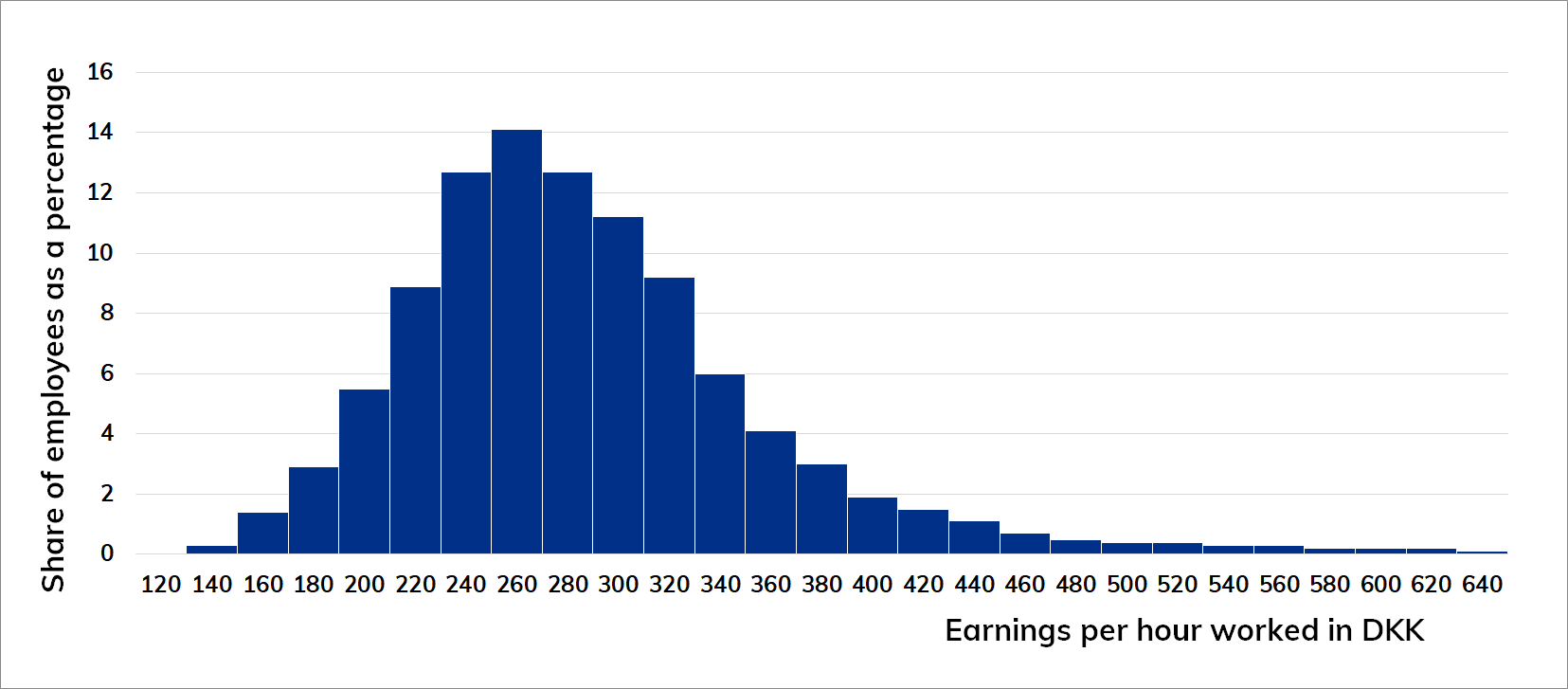In Denmark, pay conditions are established through collective agreements or individual agreements between companies and employees. On this page you can see the pay levels and agreement terms and conditions for operators and assemblers in manufacturing.
The pay of individual employees varies and depends on factors such as performance, skills, experience and in some cases piecework and bonus agreements. Other factors are the company's profile, geographical location, etc.
The chart below shows earnings per hour worked for operators and assemblers in manufacturing for individuals who are employed as ordinary employees. Apprentices, young workers, managers, and employees with special responsibilities are not included.
Earnings per hour worked for operators and assemblers in manufacturing

Source: Confederation of Danish Employers 2023. Operators and assemblers in manufacturing are calculated on the basis of work function (DISCO) = 81: Stationary Plant and Machine Operators or 82: Assemblers, and the industry code = manufacturing
See the bar chart "Earnings per hour worked for operators and assemblers" in a larger scale
The chart shows that a quarter of employees receive an overall payment of less than DKK 246,97 per hour worked. The median is DKK 280,89. The most highly paid quarter receive an overall payment of more than DKK 321,25.
Some employees receive significantly less and others significantly more than the figures mentioned.
The average is DKK 291,85 per hour worked.
What do earnings per hour worked consist of?
Earnings per hour worked is the overall amount which Danish employers pay for 1 hour of work. The payment includes all pay elements, including the agreed hourly wage and fixed and variable supplements, free choice schemes, bank holidays (public holidays which fall on a weekday), holiday and absence payments, and pensions. Absence payments are distributed across the hours worked.
Supplements for overtime and other nuisance compensation are not included.
Remuneration of posted employees must take place within the framework of EU law.
Pay elements of the Industrial Agreement
The salaries shown reflect the individual or collective agreements that have been entered into between companies and employees. The leading collective agreement for operators and assemblers in manufacturing is the Industrial Agreement between DI (Confederation of Danish Industry) and CO-Industri (The Central Organisation of Industrial Employees in Denmark).
The summary below shows the wage provisions that form the basis for earnings, excluding nuisance compensation, for employees covered by the Industrial Agreement.
- Minimum wage agreement. The agreement contains a minimum rate below which the basic wage must not fall.
- Locally and personally negotiated pay supplements.
- Employer-paid pension contributions: 10 %.
- Additional holiday entitlement and payment for public holidays: 6.5 %.
- Optional Pay Account: 7%. From 1 March 2024: 9%.
- Right to wages during periods of illness and maternity leave, etc. under certain conditions
- Piecework pay options
- In addition to the agreement-based pay elements, the legislation prescribes a holiday payment of 12.5 %.
Industrial Agreement 2023-2025
Please contact the Danish main organisations:
The Confederation of Danish Employers
Dansk Arbejdsgiverforening (DA)
Telephone: +45 33 38 90 00
Email: da@da.dk
Danish Trade Union Confederation
Fagbevægelsens Hovedorganisation (FH)
Telephone: +45 35 24 60 00
Email: fh@fho.dk

